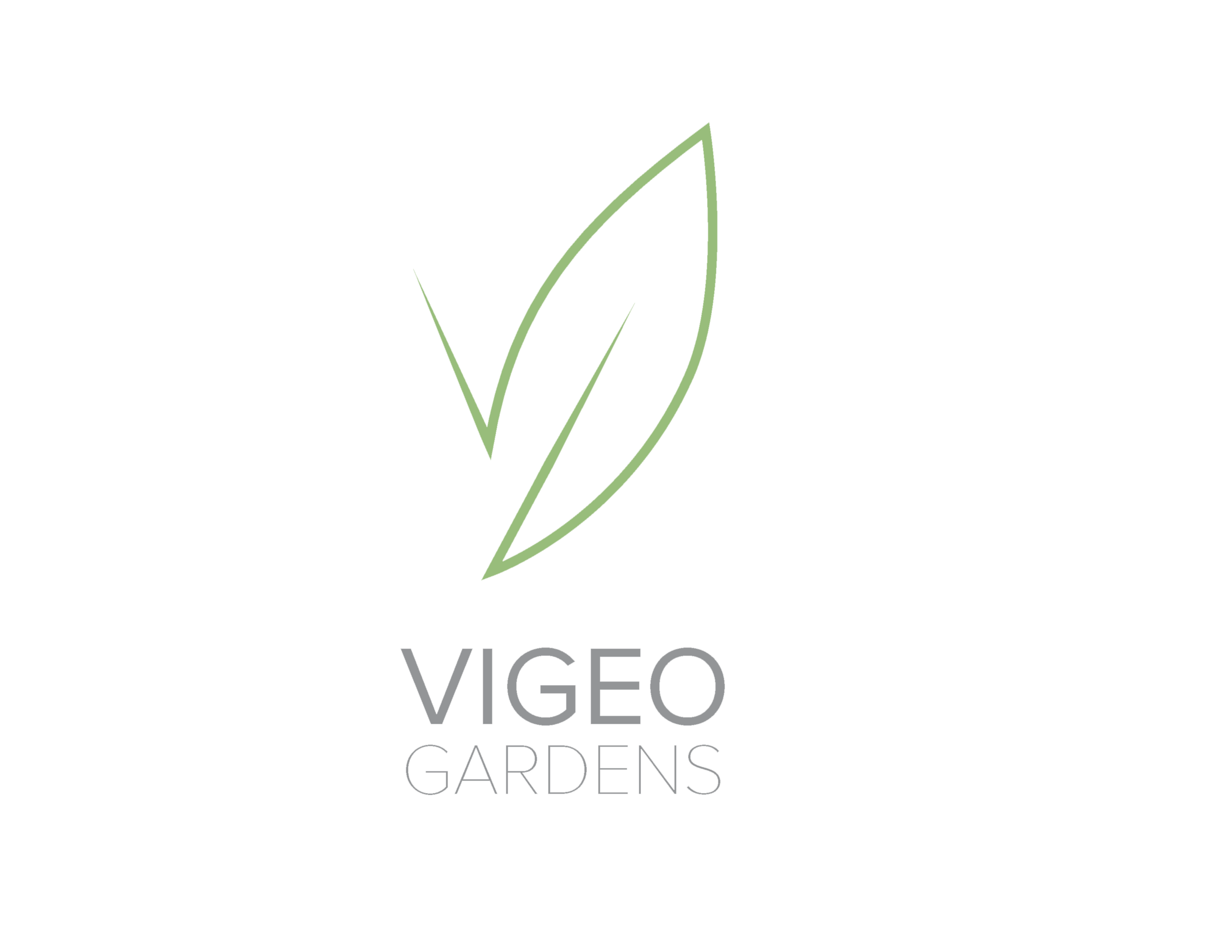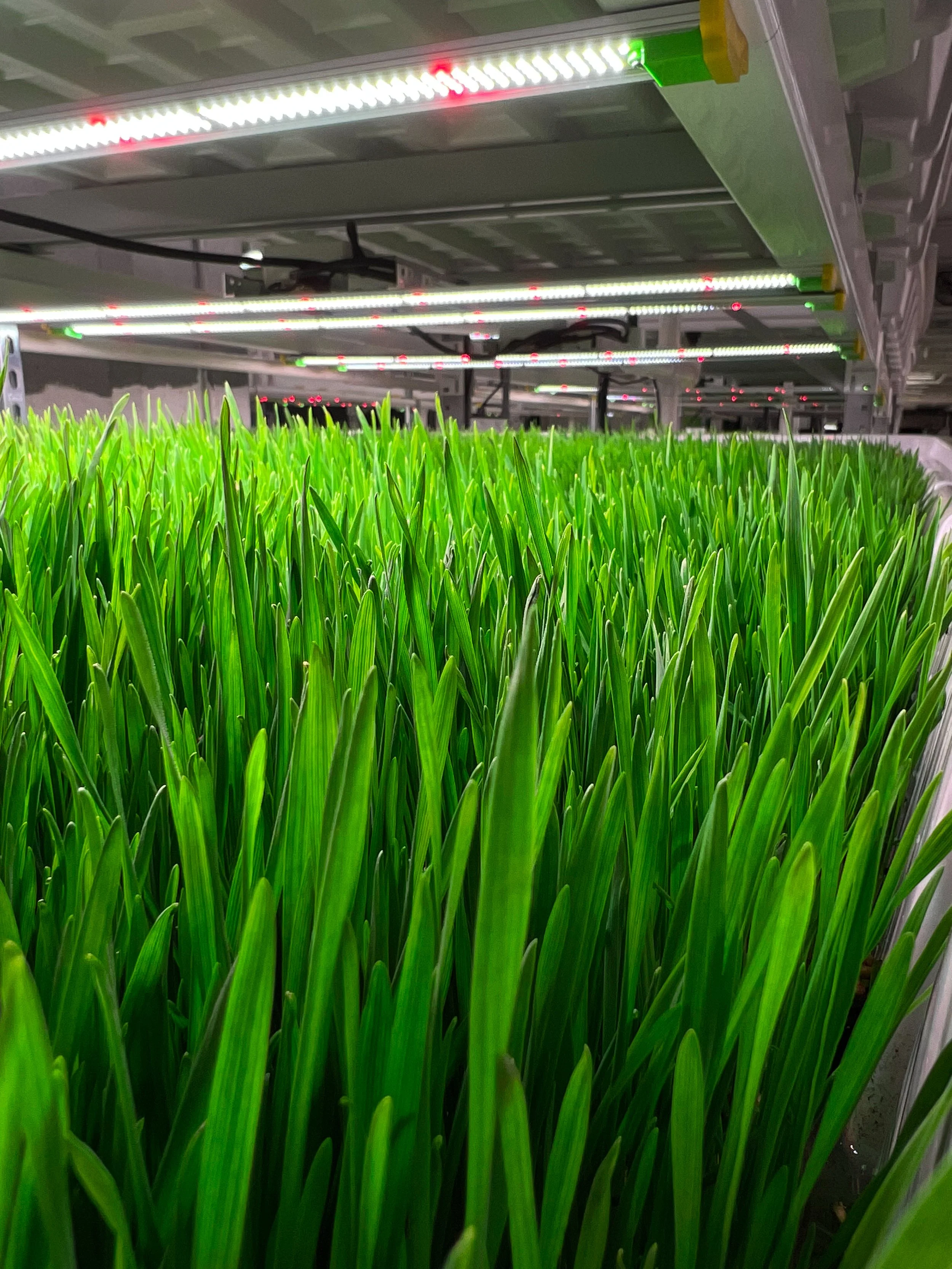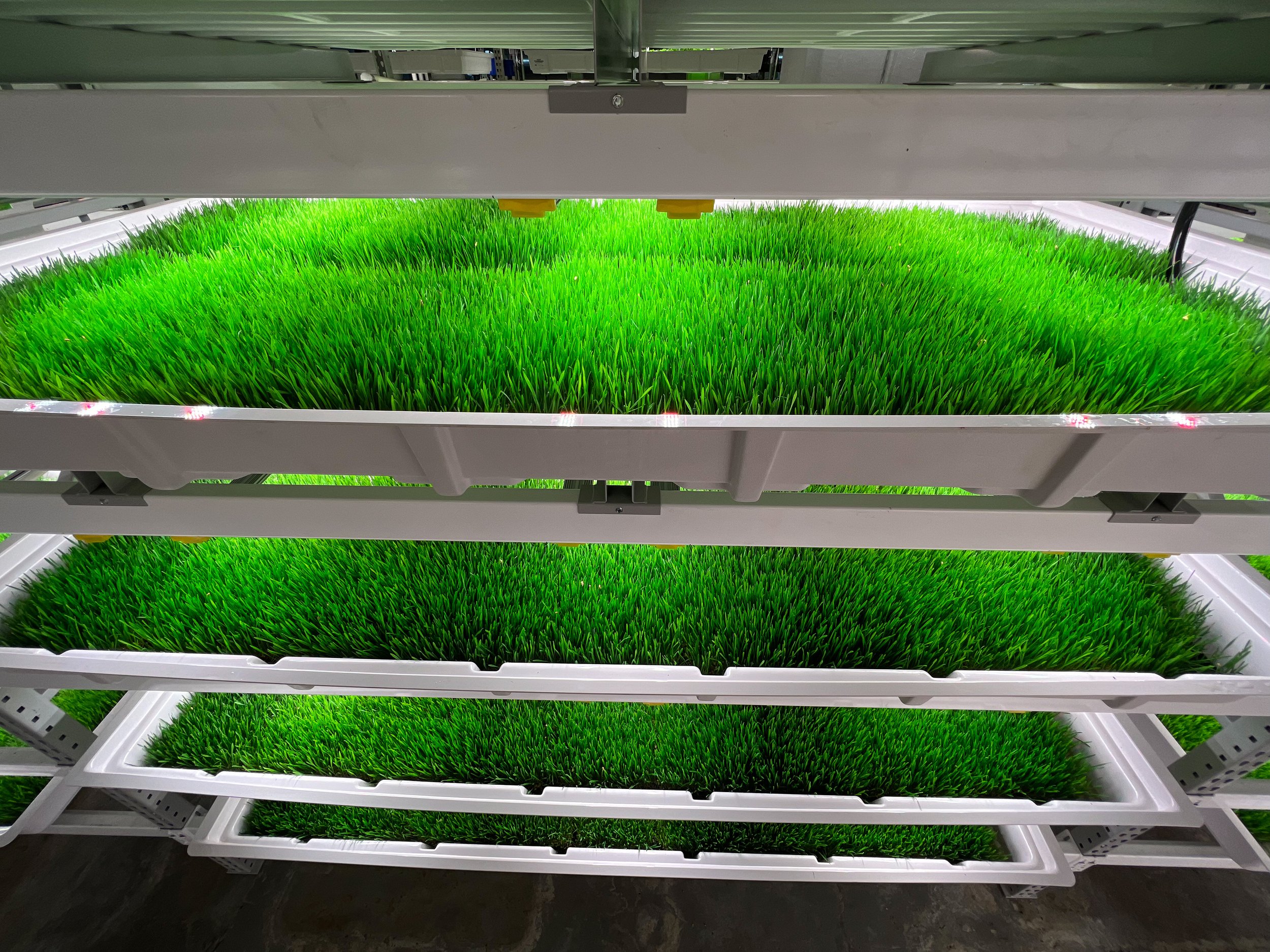how to use
Wheatgrass can be consumed in several ways:
Powder: Wheatgrass powder can be mixed into smoothies, juices, or sprinkled on food.
Shots: A small shot of wheatgrass juice, about 1-2 ounces, can be taken as a nutritional supplement.
Supplements: Wheatgrass is also available in supplement form, such as pills or capsules.
Regardless of the form you choose, it's important to start with a small amount and gradually increase the dose to avoid any potential digestive discomfort. Consult a healthcare professional before adding wheatgrass to your diet, especially if you have any health conditions or are taking any medications.
buying pointers
When buying wheatgrass, consider the following factors:
Quality: Look for wheatgrass that is grown in nutrient-rich soil, and free of chemicals and pesticides.
Freshness: Fresh wheatgrass should be bright green in color and have a slightly sweet, grassy aroma. Avoid any yellow or wilted leaves.
Packaging: Make sure cut wheatgrass is packaged in containers to maintain freshness.
Reviews: Read customer reviews to see if others have had positive experiences with the product.
Source: Try to buy wheatgrass from a reputable source, such as a health food store, to ensure that you are getting a high-quality product.
Remember, the quality of the wheatgrass can affect its nutritional value, so it's important to choose carefully.
Health benefits
Wheatgrass is considered a superfood due to its high concentration of vitamins, minerals, and antioxidants. Some of the potential health benefits of consuming wheatgrass include:
Boosts Immune System: Wheatgrass is rich in vitamins and minerals, including vitamins C and E, that help support a strong immune system.
Detoxification: Wheatgrass is believed to help remove toxins from the body and support liver function.
Antioxidant Properties: Wheatgrass is high in antioxidants, which can help protect the body from damage caused by free radicals.
Supports Digestive Health: Wheatgrass is a natural source of fiber and enzymes, which can help support healthy digestion.
Blood Purification: Wheatgrass is believed to help purify the blood, improve circulation, and support healthy red blood cell formation.
Anti-Inflammatory: Wheatgrass contains anti-inflammatory compounds that may help reduce inflammation in the body.
Skin Health: The vitamins and antioxidants in wheatgrass can help improve skin health and reduce the signs of aging.
It's important to note that while wheatgrass has been associated with these health benefits, more research is needed to confirm its effectiveness. As with any new addition to your diet, it's always best to consult with a healthcare professional before starting to consume wheatgrass.
Vigeo gardens sustainability
Vigeo Gardens specializes in sustainable indoor growing processes for wheatgrass, microgreens, herbs, and lettuce. The methods are designed to conserve resources and minimize the environmental impact of growing crops indoors. Some of these sustainable practices include:
LED Lighting: Vigeo Gardens uses energy-efficient LED lights to grow their crops, reducing the energy consumption and carbon footprint associated with traditional lighting systems.
Recycled Water: The company uses a closed-loop irrigation system to recycle water, reducing waste and conserving resources.
Sustainable Soil: Vigeo Gardens uses sustainable soil to grow their crops, eliminating the need for harsh chemical fertilizers and pesticides.
Sustainable Packaging: The company uses packaging made from RPET and is less than 50% plastic by mass.
Controlled Environment: By growing crops indoors, Vigeo Gardens can control the growing environment and reduce the risk of disease and pest outbreaks, eliminating the need for harmful chemicals.
Zero Waste: The company implements a zero-waste policy, recycling and composting all organic waste materials generated during the growing process.
These sustainable practices help to minimize the environmental impact of growing crops indoors, making Vigeo Gardens a more eco-friendly option for those looking to consume fresh, nutritious microgreens, wheatgrass, herbs, and lettuce.


